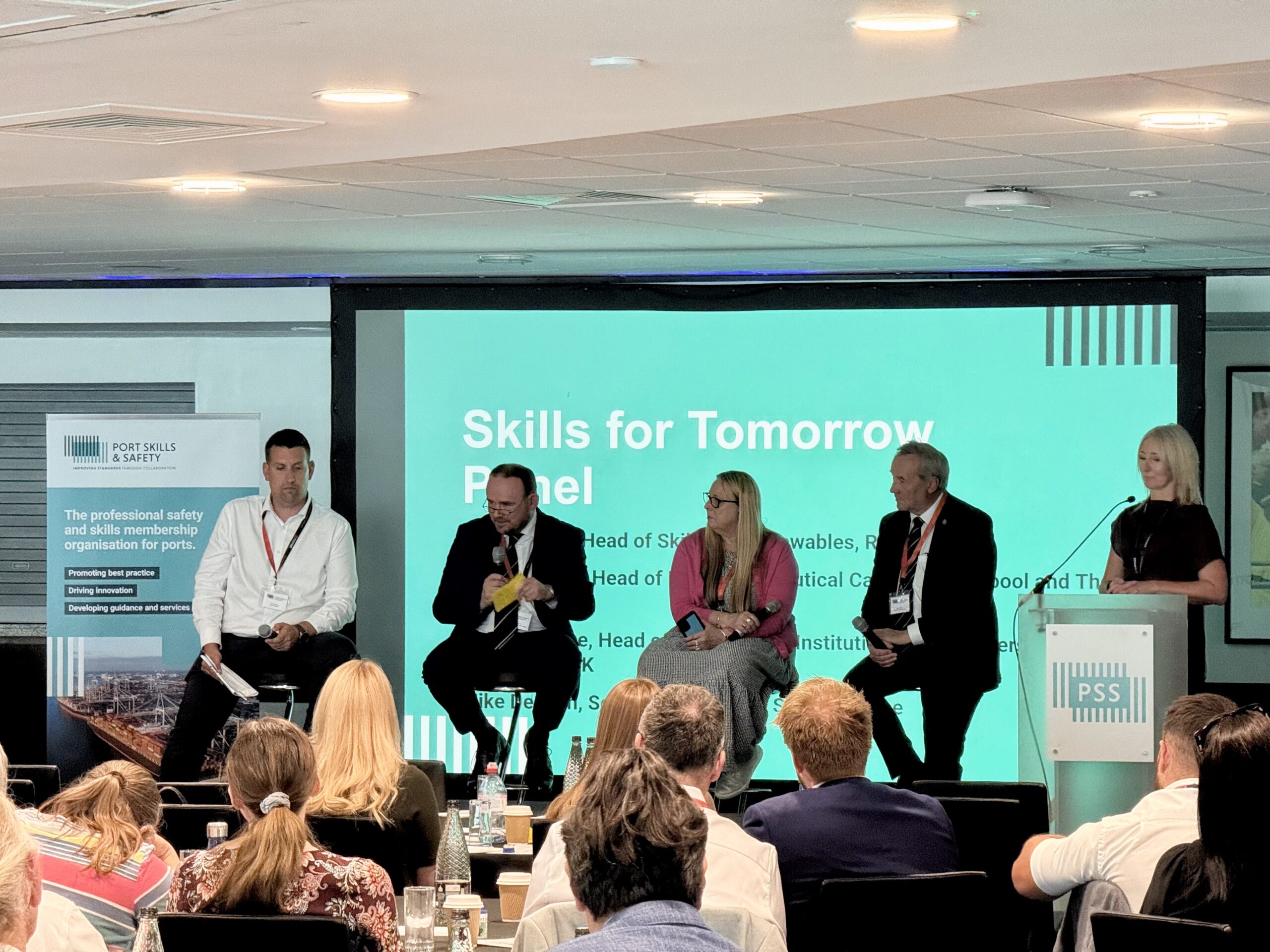NEWS
Safer Tomorrow thought leadership series: Angela Ward
Campaigns |Published: Oct 13, 2025

As we come to the end of 2025, PSS looks inwardly to uncover what will make ports safer tomorrow, first up is Skills, Careers and Diversity Lead, Angela Ward.
Ports can invest in automation, technologies, and advanced processes, but it is people who make safety and efficiency possible. No system, however sophisticated, can replace human judgement in critical moments. Skills are the infrastructure of safety, on which the port sector’s long-term resilience depends.
Ports need to adapt to decarbonisation, digitalisation, and automation while maintaining safe, efficient operations. Those who do not invest in their people risk falling behind, not just in capability, but in reputation, compliance, and attracting new talent. The sector must act now to ensure it has the workforce ready to meet both current demands and future opportunities.
Meeting these demands requires a clear, joined-up talent pipeline and succession planning. Early careers programmes such as graduate schemes, apprenticeships, internships, work experience, and funded pre-employment schemes are essential to attract new people into an industry that is still largely unknown to those seeking a new career. If action isn’t taken now to expand it, there is a risk that operational demands will not be met, let alone future ambition. This requires the industry to step up and engage with young people earlier and with a consistent approach to careers outreach.
Short courses, and port-specific training are also essential to build a safe workforce, and help to upskill and reskill the workforce to meet operational demands. However, their impact is limited when engagement is inconsistent. In addition, when each port only sends one or two staff to external courses in their geographic area, they often become uneconomic for training providers to deliver, leaving ports to develop bespoke training that cannot be benchmarked. Without aggregation and coordination across the sector, we end up with fragmented provision and uneven pathways for progression.
In the port sector, as in many others, people are often promoted to supervisory roles based on their performance in the current job, rather than on their management or leadership capabilities. Yet middle managers are a vital link in the workforce. They shape workplace culture, which in turn influences staff retention. It is therefore essential that they receive targeted training and mentoring to develop the skills required to excel in their roles and foster a positive, inclusive, and safe working environment.
Strategic, sector-wide engagement would help ports to attract the people they need now, and in the future, while giving individuals clarity about their progression opportunities.
Standardisation would underpin this effort. Clear minimum qualifications, training requirements, and recognised benchmarks provide a framework for competence, safety, and sector credibility. Standardisation also makes it possible to pool cohorts, share provision across ports, and give regulators and insurers confidence in workforce capability. Fragmented or bespoke training is not only inefficient, it introduces variability that can compromise safety.
PSS is uniquely positioned to bring ports together to agree standards, make training scalable, and share best practice. This is part of PSS’s role, but the success of this approach really does depend on sector-wide commitment.

Diversity in people and thought is equally critical. Recruiting in the sector’s own image limits innovation, weakens resilience, and hinders retention. Ports must reach beyond traditional networks – engaging under-represented groups and supporting career changers from other industries. Mentoring, flexible study arrangements, and targeted outreach can transform the talent pool, strengthen the workforce, and improve adaptability. A diverse sector is safer, stronger, and more capable of meeting the evolving challenges of the future, but only if all organisations commit to participation and inclusion.
It is clear that data drives informed decision-making. This year, for the first time, baseline data was collected on early careers initiatives, giving an initial view of talent entering ports. However, only a fraction of UK and Ireland ports submitted data, meaning that a truly sector-wide picture cannot be built. Ports hold workforce and training data and already submit safety data to PSS, so what is preventing the sharing of anonymised data on the workforce?
PSS receives regular requests from ports asking how many females are working in a particular role, and government always asks for the data to support intervention on skills shortages; but PSS can only give vague unsubstantiated answers. If ports want to be taken seriously as a mature sector, fit for the future, and requiring minimal intervention, comprehensive workforce data must be made available to forecast skills gaps and plan strategically. Achieving this would put ports on a par with sectors such as engineering, rail and renewables, which already have a clear picture of workforce composition and future skills needs. PSS can lead this work, but its only valuable if the whole sector engages fully and recognises the benefits.
For the port sector to thrive, skills must not be seen as a series of short-term transactions, and instead become a place where long-term, high value careers are made, and long-term growth is built.
PSS is leading the way, but this work will only succeed if the entire sector engages — sharing data, agreeing and adopting standards, and participating in coordinated training and development. By building joined-up pipelines and pathways, maintaining clear standards, embracing diversity, and using data intelligently, the sector can ensure it remains safe and productive and an inspiring place to build a career for the future.
